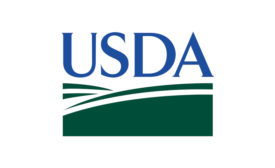Home » Keywords: » USDA
Items Tagged with 'USDA'
ARTICLES
“Make America Healthy Again” and its impact on the dairy industry
Read More
Sugar reduction a huge component of health and wellness’ popularity
Trend expected to roll on like a freight train.
March 17, 2025
The great success of the dairy industry is underreported
Some segments of the industry are on fire, while others show tremendous improvement.
March 5, 2025
Dairy is a huge part of the nutrition equation
IDFA weighs in on the DGAC report, issued in December.
February 27, 2025
The great success of the dairy industry is underreported
Some segments of the industry are on fire, while others show tremendous improvement.
February 5, 2025
2024 State of the Dairy Industry: U.S. Dairy Exports
A sunny outlook: United States is on track for record cheese exports in 2024.
November 26, 2024
EVENTS
Industry
11/27/12
Rutgers University
Specific Location Given at Registration
New Brunswick, NJ
United States
Contact: Dalynn Knigge
Rutgers' Better Process Control School (BPCS) 4-day Training
Stay ahead of the curve. Unlock a dose of cutting-edge insights.
Receive our premium content directly to your inbox.
SIGN-UP TODAYCopyright ©2025. All Rights Reserved BNP Media.
Design, CMS, Hosting & Web Development :: ePublishing










